News
-
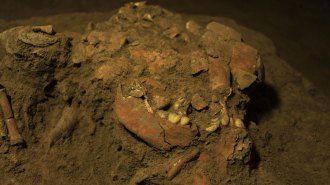 Anthropology
AnthropologyAncient DNA shows the peopling of Southeast Asian islands was surprisingly complex
Ancient DNA from a hunter-gatherer skeleton points to earlier-than-expected human arrivals on Southeast Asian islands known as Wallacea.
By Bruce Bower -
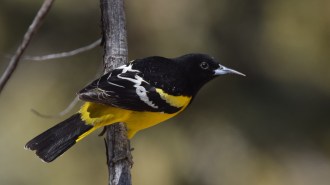 Science & Society
Science & SocietyRacism lurks in names given to plants and animals. That’s starting to change
Racist legacies linger in everyday lingo for birds, bugs and more. Some scientists see the chance to change that.
-
 Climate
ClimateClimate change made Europe’s flash floods in July more likely
The deadly July floods in Belgium and Germany bear the fingerprints of human-caused climate change, scientists say.
-
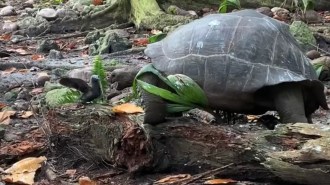 Animals
AnimalsA giant tortoise was caught stalking, killing and eating a baby bird
Video captures the first documented instance of a tortoise hunting another animal.
-
 Astronomy
AstronomyHere’s how cool a star can be and still achieve lasting success
The dividing line between successful stars and failed ones is a surface temperature of about 1,200° to 1,400° Celsius, a new study reports.
By Ken Croswell -
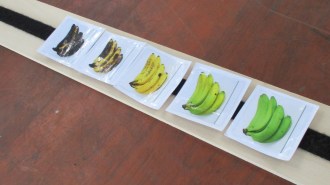 Psychology
PsychologyEveryone maps numbers in space. But why don’t we all use the same directions?
The debate over whether number lines are innate or learned obscures a more fundamental question: Why do we map numbers to space in the first place?
By Sujata Gupta -
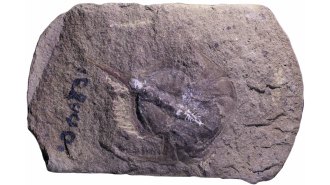 Paleontology
PaleontologyHow fossilization preserved a 310-million-year-old horseshoe crab’s brain
A 310-million-year-old horseshoe crab’s brain was preserved in clay, thanks to an uncommon fossilization process that protected the fragile neural tissues.
-
 Psychology
Psychology‘Ghost games’ spotlight the psychological effect fans have on referees
Soccer teams won fewer games and received more fouls when playing at home during the 2019–2020 season, when many fans were absent, than before the pandemic.
By Nikk Ogasa -
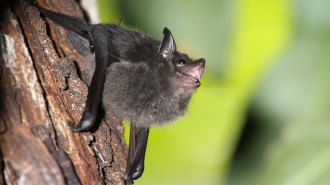 Animals
AnimalsThese baby greater sac-winged bats babble to learn their mating songs
Greater sac-winged bat pups babble their way through learning their rich vocal repertoire, similar to how human infants babble before speaking.
-
 Health & Medicine
Health & MedicineHow coronavirus vaccines still help people who already had COVID-19
Coronavirus vaccines give the immune system of previously infected people a boost, probably giving those people better protection against new variants.
-
 Physics
PhysicsWith a powerful laser blast, scientists near a nuclear fusion milestone
A National Ignition Facility experiment spawned nuclear fusion reactions that released nearly as much energy as was used to ignite them.
-
 Earth
EarthHaiti’s citizen seismologists helped track its devastating quake in real time
Two scientists explain how citizen scientists and their work could help provide a better understanding of Haiti’s seismic hazards.